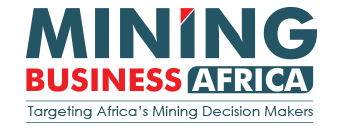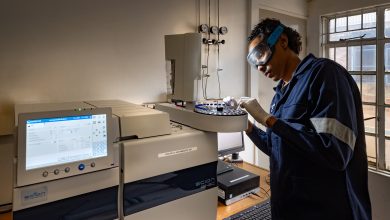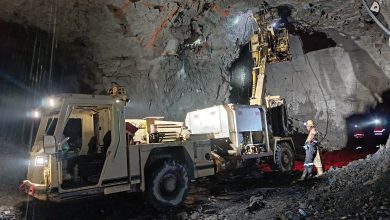
Matsapa-A-Botshelo is the fastest growing junior miner in South Africa
“It’s a seriously capital intensive industry,” said CEO Pinagare Mogodi in an opening line in his
interview. “The mining business shows the biggest potential while needing to consume
deca-millions of Rands on a monthly basis. The vision is major infrastructural expansion, so we
had to redirect all available capital toward it,” he continued.
This bet demonstrates the potentialities of the mining industry in Africa, and showcases investor
sentiment regarding the regulatory environment and perceived value of the South African local
port authorities.
Matsapa-A-Botshelo’s Mining Operations
MAB’s operations are rooted in opencast mining, with services that include crushing, screening,
and earthworks. In coal, the company supplies both washed and unwashed grades, blended to
customer specifications against the standard SCoTA contracts and Richards Bay benchmarks.
Output ranges between 50,000 and 250,000 tonnes of coal each month, much of which is
shipped to Asia and Europe. These volumes are considered exceptionally high for junior miners.
Chrome is a parallel pillar of the business. The group operates distributed beneficiation facilities
capable of handling 135,000 tonnes of run-of-mine ore every month, with a total processing
capacity of roughly 250,000 tonnes when tailings are included. These plants produce more than
90,000 tonnes of chrome concentrate monthly, serving both domestic and export clients.
“We are starting to understand the supply chain and the shipping industry as a result of the
mining business, and plan to continue investing in and around the mining industry,” Mogodi said
confidently.
Size and Scope of MAB’s Operations
The company reported employing 489 people, including independent contractors, at the end of
2022. Today, that number exceeds 500 and excludes the third-party workforce that supports
MAB’s export chain at Richards Bay, where the company’s coal is shipped through the Richards
Bay Coal Terminal and the port’s Multi-Purpose Terminal. Cargo inspections are handled by
SGS, and shipping contracts are structured for Panamax and Capesize vessels destined for
overseas markets. Chrome exports have also been reported as moving through Durban port
facilities.
Transport from mine to plant, siding, and ultimately port is managed through MAB’s own
logistics arm. The group operates around 150 leased trucks, largely MAN and Volvo units, and
coordinates with an additional pool of nearly 700 subcontractor trucks. Short-haul work covers
the movement of ore from pit to processing, while long-haul contracts feed the Richards Bay
and Durban corridors. Rail sidings are maintained to support bulk movements, although the
group does not operate its own locomotives.
International Business and High Grade Coalfields
The company’s resource base reflects South Africa’s two great mineral endowments. Its coal is
mined from the Karoo Supergroup coalfields that underpin the country’s export grades, while its
chrome comes from the Bushveld Igneous Complex and the Steelpoort Valley, one of the richest
chromite provinces in the world.
With a supply chain structured around Asian and European demand, Richards Bay remains the
group’s primary export outlet. The company has also signalled plans to extend its commercial
reach further afield, including into India, where coal trading support offices have been
mentioned.
MAB’s trajectory illustrates the integration of mining, processing, and logistics into a seamless
export operation. From open pits in the Karoo and the Bushveld to deep-water terminals at
Richards Bay and Durban, the group has positioned itself as both producer and transporter,
ensuring that its coal and chrome reach global markets reliably and at scale.
Revered MAB Founder Pinagare Mogodi
MAB was founded by Pinagare Mogodi, who serves as Managing Director. He holds a
Bachelor’s degree in Accounting and Management from Eduvos Institute and has enhanced his
expertise through continuing education, including short courses in Project Management and
Pastel Accounting, along with a certificate in Strategic Planning and Management Tactics.
These qualifications have guided his leadership in growing MAB into a distinguished brand with
a management team collectively boasting over 60 years of industry experience.
MAB Group identifies as a 100% black-owned and controlled company, aligning its structure
with its broader mission of economic inclusion and transformation. The company operates with
support from four anchor shareholders, leading funding groups and venture capitalists, who
serve on its board as strategic, non-executive partners. This collaborative framework
complements MAB’s vision of transformation within South Africa’s mining sector.
Supporting MAB’s ambitions is a firm financial footing. The group boasts a strong cash flow and
substantial reserves, with a declared terminal value of R12 billion. This financial strength
positions MAB to pursue ambitious infrastructure, real estate, and emerging market ventures
with confidence.
Vertical Integrations of the Business
For more than a decade, Pinagare Mogodi’s MAB Group has moved from concrete foundations
to coal seams, and from construction sites to chrome beneficiation plants. In 2025, the company
is embarking on its boldest evolution yet, layering new vertical integrations that promise to turn it
from a national player into a continental powerhouse.
The most visible of these integrations is MAB Energy, the Group’s formal entry into fuel supply.
Long recognised as a trusted operator in mining and logistics, MAB is now expanding into
importing and distributing diesel across Africa. This is not a side venture, it is a continental-scale
infrastructure play. Plans are already in motion for advanced diesel storage facilities, highway
truck stops along key corridors, and partnerships with global infrastructure operators such as
Vopak to secure large-scale storage capacity. The initiative has been welcomed by major South
African stakeholders, from PetroSA to Eskom, who see in MAB Energy the first large,
black-owned fuel infrastructure network capable of restoring trust in a sector often marred by
unreliable operators.
Running alongside the energy pivot is MAB Connect, the Group’s IT and connectivity arm. This
division represents another vertical integration, this time into South Africa’s digital and
educational future. Its mission is to bridge the country’s persistent digital divide by pairing
affordable internet access with advanced Learning Management Systems. The goal is
audacious: to reach more than 100,000 learners in Gauteng, Mpumalanga, and Limpopo in its
first year alone. By integrating AI-driven personalised learning, SA-SAMS compliance, and
teacher collaboration tools, MAB Connect is positioning itself not simply as a service provider,
but as an enabler of systemic change in education.
These integrations are backed by a reshaped corporate structure. New shareholders have
entered the fold, injecting capital and doubling the company’s market valuation from R5.7 billion
to R11.3 billion. For Mogodi, these moves are not just about scaling revenues, they are about
creating parallel ecosystems where mining, logistics, fuel, and digital education support and
reinforce each other. The mines produce, the trucks haul, the ports export, the fuel powers
fleets, and the connectivity educates the next generation that will staff and manage this
industrial ecosystem
From the dust of construction sites to the chrome-rich seams of the Bushveld, Pinagare Mogodi
has always framed his company’s evolution as a story of purpose.






